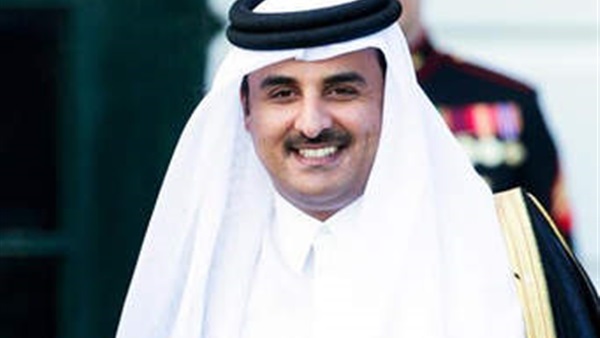Qatar uses 'black ops' to sabotage world cup2022

Documents
leaked to The Sunday Times will add to calls for Qatar to be stripped of the
right to host the 2022 World Cup
Documents
leaked to The Sunday Times will add to calls for Qatar to be stripped of the
right to host the 2022 World Cup
The
controversial Qatar World Cup bid team broke Fifa’s rules by running a secret
“black operations” campaign to sabotage rivals competing to host the
tournament, according to documents leaked to The Sunday Times.
Emails from
a whistleblower show how the bid paid a public relations firm and former CIA
agents to pump out fake propaganda about its main rivals, the United States and
Australia, during its successful campaign to host the next World Cup.
The campaign
involved recruiting influential people to attack the bids in their own
countries, seeking to create the impression that there was “zero support” for
the World Cup domestically.
One of the
key criteria laid down by Fifa, world football’s governing body, was that the
bids should have strong backing at home.
The
revelations will add to growing calls for Qatar to be stripped of the right to
host the World Cup.
This
newspaper has already provided extensive evidence of corruption in the process
that centred on payments to football officials by Mohamed bin Hammam, Qatar’s
top Fifa representative.
The latest
revelations appear to be a flagrant breach of the rules set down for bidding
countries by Fifa.
It says that
bidders should not make “any written or oral statements of any kind, whether
adverse or otherwise, about the bids or candidatures of any other member
association.”
One of the
leaked emails, sent to Qatar’s deputy bid leader Ali al-Thawadi, shows that the
Gulf state was aware of a plot to spread “poison” against its chief rivals —
even cooking up a resolution for the US Congress on the “harmful” effects of an
American World Cup in the week of the vote.
Middlemen
acting for the bid approached respected academics pretending to represent
taxpayers concerned about public money being spent on rival bids.
They paid
one professor $9,000 to write a damning report about the huge economic cost of
a US World Cup and then pushed the story out to the international media.
The
documents were passed to The Sunday Times by a whistleblower who had worked
with the Qatar bid on the World Cup campaign.
Last month
the whistleblower gave testimony to Damian Collins, chairman of the culture,
media and sport select committee. Collins said he was “extremely concerned” and
urged Fifa to investigate. “The ultimate sanction for breaking the rules would
be the loss of the right to host the tournament,” he said.
Lord
Triesman, former chairman of the Football Association and England bid chairman,
said: “Fifa’s obligation is to look at the evidence thoroughly and very rapidly
and have the courage to take what may be a difficult decision. If Qatar is
shown to have broken the Fifa rules, then they can’t hold on to the World Cup.”
He added: “I
think it would not be wrong for Fifa to reconsider England in those
circumstances ... We have the capabilities.”
A two-year
Fifa inquiry into the corruption allegations against Qatar and the other
bidders “cleared” the Gulf state and found no links between the state’s
official bid committee and bin Hammam.
It is
understood that the latest leaked documents were not seen by the Fifa
investigation, led by the US attorney Michael Garcia.
This time
the documents do implicate the Qatar bid committee. The whistleblower describes
an extensive campaign funded and overseen by the committee aimed at America,
Australia and also England — regarded as an outsider.
The aim of
the black operations campaign, according to the whistleblower, was to influence
the Fifa executive committee by making it appear as if there was no local
support for Qatar’s rivals in the months before they voted in December 2010.
The strategy
was executed in the New York offices of communications company Brown Lloyd
Jones (BLJ), which is now BLJ Worldwide.
A team of
ex-CIA agents is also said to have been employed to help disseminate propaganda
against Qatar’s rivals.
According to
the emails, they recruited journalists, bloggers and other figures to hype up
negative stories, spy on rivals, produce intelligence reports on key people and
create grassroots protests.
In one email
dated May 2010, Michael Holtzman, a BLJ president based in New York, gave a
progress report setting out details of the covert operations to Ahmad Nimeh, a
senior adviser to the bid team who now works for the Qatar supreme committee
for delivery and legacy. Entitled “Strategy”, the email begins: “For the past 4
months we have undertaken an extensive campaign to undermine the 2018/2022
candidacies of competitor countries, particularly Australia and the US”.
Since Qatar
won the right to host the World Cup its relations have worsened in the Gulf, notably
with the UAE and Saudi Arabia. The two nations are said to be attempting to
undermine the Qatar bid by spinning negative publicity. Today’s Sunday Times
investigation has relied on documentary evidence that has been checked and
corroborated.
The members
of the Qatar bid and BLJ Worldwide failed to respond to questions last week.
BLJ London said it was undergoing a demerger with the New York office at the
time and had no knowledge of the work for the Qatar bid.





